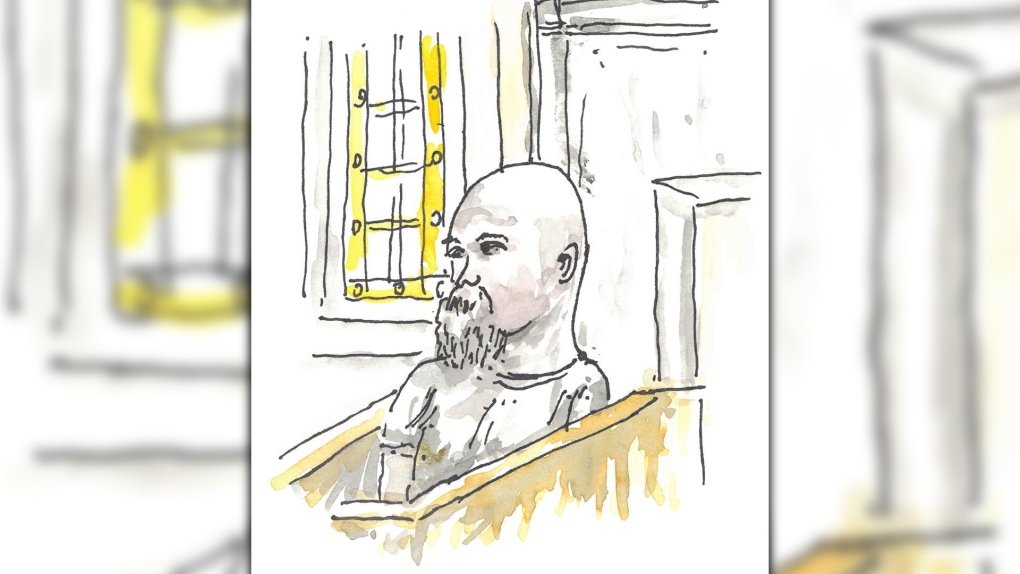Internet searches, Facebook messages of admitted serial killer used as evidence in Winnipeg trial

Warning: This article contains graphic content that may be disturbing to readers. Discretion is advised.
The definition of a serial killer, beheadings, garbage collection dates and questions about DNA evidence were among the internet searches made on the computer belonging to admitted serial killer Jeremy Skibicki around the times he killed four women, the court heard Tuesday.
This evidence, found on Skibicki’s computer as a result of a search warrant, was presented in Manitoba’s Court of King’s Bench Tuesday.
Winnipeg police crime intelligence analyst Riley Johansson testified about what was found on Skibicki’s computer and in the admitted serial killer’s Facebook messages.
The 37-year-old accused is charged with four counts of first-degree murder in the 2022 deaths of Rebecca Contois, Morgan Harris, Marcedes Myran, and an unidentified woman who Indigenous leaders have given the name Mashkode Bizhiki’ikwe or Buffalo Woman.
He has pleaded not guilty, but has admitted to the killings. However, his defence argues Skibicki should be found not criminally responsible for the deaths due to mental disorder.
Around the times of the killings in March and May 2022, Johansson testified numerous internet searches were made from Skibicki’s computer regarding Winnipeg’s waste management, what time garbage was collected, along with questions about DNA evidence and whether bleach would remove fingerprints.
The court also heard one day after Myran was killed on May 4, several searches were made from Skibicki’s computer including ‘definition of a serial killer’ and ‘do Muslims behead people with knives.’
Johansson also testified about a photo of Skibicki holding a knife that was found on his computer which had been uploaded around the time of Contois’ death. Johansson said there appeared to be a reddish stain on Skibicki’s hands, believed to be blood.
Facebook messages with ex-wife used as evidence in trial
In Facebook messages from Skibicki’s account, Johansson said the man discussed his “sexual frustration” and “depraved sexual perversion” and told his ex-wife, “I have never felt so broken sexually.”
The court was told Skibicki sent Facebook messages to his wife on May 9 – days after Myran was killed – telling his ex-wife, “I could be doing like three life sentences.”
“I feel so ashamed for what I did before,” the messages read. “I just went down a dark path because I stopped caring.”
The court is expected to hear more testimony in the afternoon regarding more Facebook messages Skibicki is believed to have sent.
The Crown is expected to wrap up its case on Wednesday.
There is a support line available for those impacted by missing and murdered Indigenous women, girls and LGBTQ2S+ people: 1-844-413-6649.
The Hope for Wellness Hotline for Indigenous people, with support in Cree, Ojibway and Inuktitut, is also available 24/7 in Canada at 1-855-242-3310.
View original article here Source




